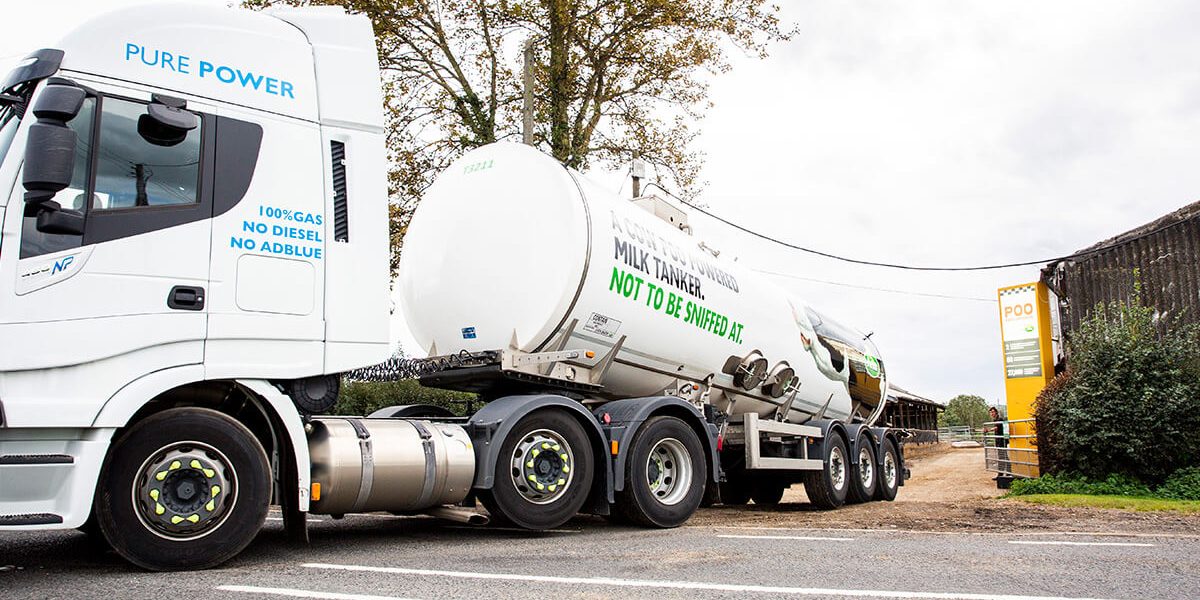Amid concern about the cost of energy and preparations for potential shortages of power in the coming months, farmers from the UK’s biggest dairy cooperative, Arla, has issued a call to action for the Government to tap into a major unused source of energy from farms and the wider food supply chain.
Figures show that, with support, nearly 91 million tons of manure and slurry and 10 million tons of food waste could be turned into 8bn cubic meters of biomethane, enough to heat 6.4 million homes or run around 3.8 million of the UK’s buses and heavy goods vehicles. However, much more investment would be needed in the anaerobic digestion (AD) system to produce this sustainable gas at scale.
On the back of its recent ‘poo power’ trials in 2020, which turned cow poo from 500 cows into 27,000 liters of biofuel for two trucks, Arla has now invested in permanent moves to tap into this energy source. The dairy cooperative has started to use slurry along with food that would otherwise go to waste from its distribution site in Hatfield to power seven trucks.
However, Arla would like to take this much further. With 2,100 dairy farmers in the UK, the cooperative’s farmers’ cows produce millions tons of slurry each year and when coupled with food that would otherwise have gone to waste Arla alone has the potential to turn tons of waste into valuable, reliable and sustainable fuel. Increasing the number of vehicles running on this biogas will result in a reduction in vehicle emissions of 80% and using the digestate coming out of the AD process instead of fertilizer on crops reduces on-farm emissions by a further 7%.
“At a time when energy security is a major concern for the Government, businesses, and households across the UK, we’re clear about the opportunity presented by waste from farming and the wider food industry. We’ve shown that poo power is a viable and reliable source of power, so we’re calling for the Government to support British farmers and the waste and energy sectors with their plans for investment in infrastructure,” said James Pirie, vice president of UK logistics for Arla.
To enable British farmers to access AD plants and tap into the full potential of poo power (and other organic waste), Arla has three key asks of politicians:
- Work with industry and local communities to develop a holistic and nationwide strategy for AD which supports its use on a centralized, community-based, and on-farm level; and promotes the use of slurry and manure as a renewable energy source.
- Ensure that the new ELMS (environmental land management schemes) regime provides financial support for the use of digestate as a biofertilizer, recognizing that it is safe and more environmentally friendly; this backing would drive the adoption of AD at an on-farm level.
- Extend the Renewable Transport Fuel Obligation, which supports the use of biogases in transport, beyond 2032.
Source: Arla







